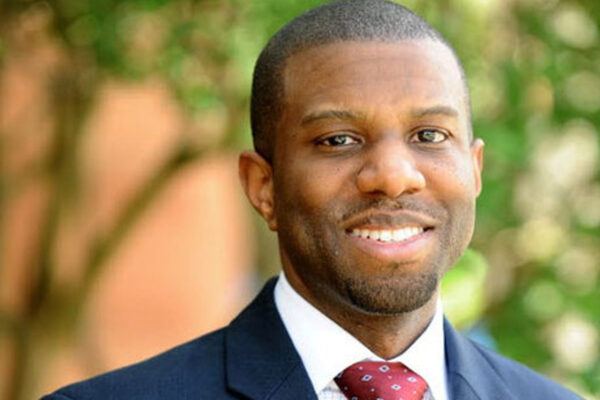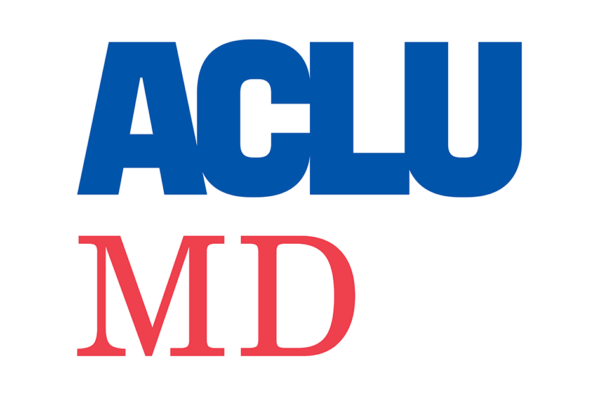ANNAPOLIS – In a presentation on Wednesday to the Maryland Commission on Innovation and Excellence (“Kirwan”), race equity expert Dr. Ivory Toldson delivered his highly anticipated second presentation along with a call to action to the 25 Commission members to stand up for Black and Brown children in Maryland. The ACLU of Maryland (ACLU) joins Dr. Toldson in urging the Commission to include explicit policies, strategies, and staffing allocations to address racial inequities.
Dr. Toldson raised a number of serious inequities that must be addressed by the Kirwan Commission, testifying: “When we look at data from civil rights data collection, we do know that Black and Hispanic students in Maryland are less likely to have the types of classes to make them competitive for college, to have access to a college preparatory curriculum, and also to have teachers who disproportionately have less qualifications and experiences, or may not have access to the types of teachers who can teach college preparatory classes.”
To evaluate the “Kirwan” Commission working group documents, Dr. Toldson used a methodological strategy, School Equity Model: Equity to Excellence, to provide guidance on state-level educational equity using an equity framework, which involves three core tenets: (1) good data; (2) thoughtful analysis; and (3) compassionate understanding.
Some highlights from Dr. Toldson’s preliminary observations and recommendations for eliminating racial inequities in Maryland’s schools include:
- Explicit acknowledgement of racial disparities in access to education and policies.
- Ways to serve diverse populations of students that address their unique cultural needs.
- Acknowledgement that teachers who are already successful in our classrooms across cultures are not just smart but are compassionate, empathetic, deliver culturally meaningful content, which are teacher qualities that must be sought and encouraged.
- Cultural competency training is necessary for educators of all races.
- Cultural biases may be present in early education assessments.
Maryland’s new funding formula will impact an entire generation of students. The Commission’s charge is to make recommendations for improving education in Maryland through funding, policies, and allocating resources. Since Black and Brown students make up more than half of Maryland’s public school enrollment—and Maryland’s future rests on how well it serves these students—the state’s “Kirwan” Commission should center race equity as the group finalizes their recommendations, which are expected by the end of the year.
Dr. Toldson made this important point to the Commissioners: “In the working group reports, the implication of ‘at-risk’ is that it includes students who are in poverty, students who are participating in special education, students who have experienced some form of trauma, and English learners. But it’s important to note that with the right protective factors, any of those categories could have students in them that are not at risk if they have certain protective factors around them.”
State Superintendent Dr. Karen Salmon affirmed a long-term commitment to race equity and that she wants to continue to work with Dr. Toldson to ensure race equity is integrated throughout recommendations.
The Constitution of Maryland establishes the mandate for a “thorough and efficient” free public education for all children in the state. However, the ACLU is deeply concerned that Black and Latinx students are not being adequately and equitably served by Maryland’s education system. The Education Trust recently released a new set of analyses that examine racial inequities in academic achievement, funding, access to high-quality teachers and leaders, and more. The data make a clear and compelling case that race equity must be a centerpiece of our deliberations about policy changes to Maryland’s educational system.
In addition to providing his own observations and recommendations, Dr. Toldson lifted up those from stakeholders, such as ACLU of Maryland, and pointed to the gaps between feedback and the initial Working Group drafts. He strongly encouraged the Commission to incorporate stakeholder recommendations.
“While poverty is a critical proxy for meeting the needs of underserved children, that factor should be combined with focused strategies that address racial inequities when the state decides how best to target resources,” said Bebe Verdery, ACLU of Maryland’s Education Director. The ACLU is advocating for a full and equitable funding formula that addresses racial equity throughout the formula and via other reforms to erase racial inequities in achievement.
The ACLU believes by incorporating Dr. Toldson’s recommendations, combined with those of The Education Trust, ACLU, and other groups who are working extensively on race equity issues in education across Maryland, the “Kirwan” Commission can recommend reforms that will begin to eliminate these racial inequities.
Go to the ACLU of Maryland website to read ACLU’s priorities for the Kirwan Commission, including race equity: www.aclu-md.org/kirwan
###
Dr. Ivory Toldson is a national expert on educating students of color and building channels for post-secondary success. President and CEO of The Quality Education for Minorities (QEM) Network and professor of counseling psychology at Howard University, Dr. Toldson is also the former head of the White House Initiative on Historically Black Colleges and Universities.
Related Content

What is the P.R.O.P.E.R. Way to Educate Black Students?

Race Equity Must Be a Key Priority for the Kirwan Commission
Stay Informed
Sign up to be the first to hear about how to take action.
By completing this form, I agree to receive occasional emails per the terms of the ACLU’s privacy statement.
By completing this form, I agree to receive occasional emails per the terms of the ACLU’s privacy statement.



